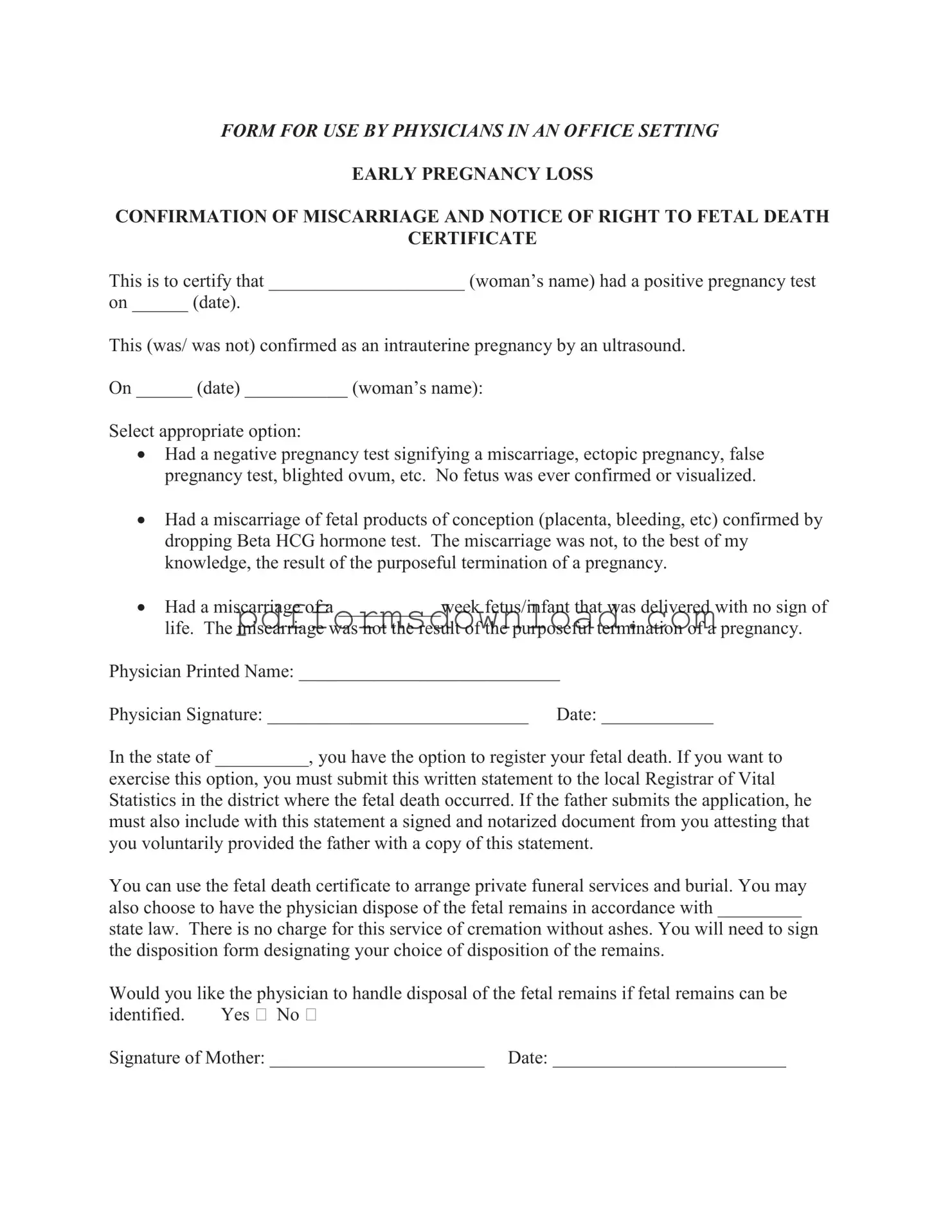Download Miscarriage Discharge Paper Template
The Miscarriage Discharge Paper form is a crucial document used by physicians in an office setting to confirm early pregnancy loss and provide necessary information regarding the fetal death certificate. This form ensures that women receive the appropriate acknowledgment of their loss and outlines their rights regarding the registration of fetal death. If you need to fill out this form, click the button below.
Make This Document Now

Download Miscarriage Discharge Paper Template
Make This Document Now

Make This Document Now
or
Free PDF File
Your form is almost ready
Complete your Miscarriage Discharge Paper online — edit, save, and download easily.